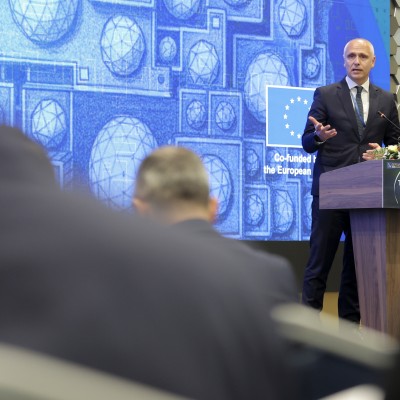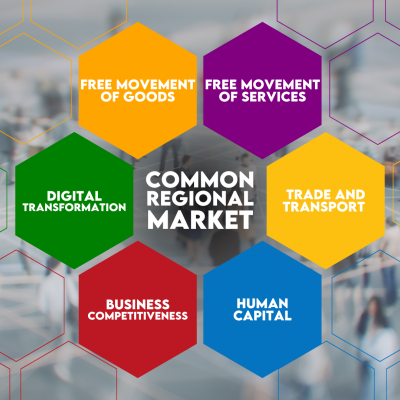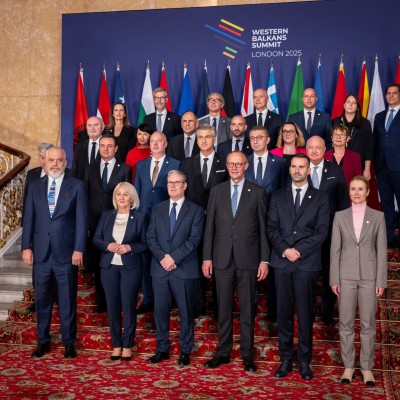RCC organises the Second Ministerial Meeting on the Green Agenda for the Western Balkans Western Balkan Ministers of Environment endorse Dubrovnik Declaration, moving from plans to action
14 October 2025
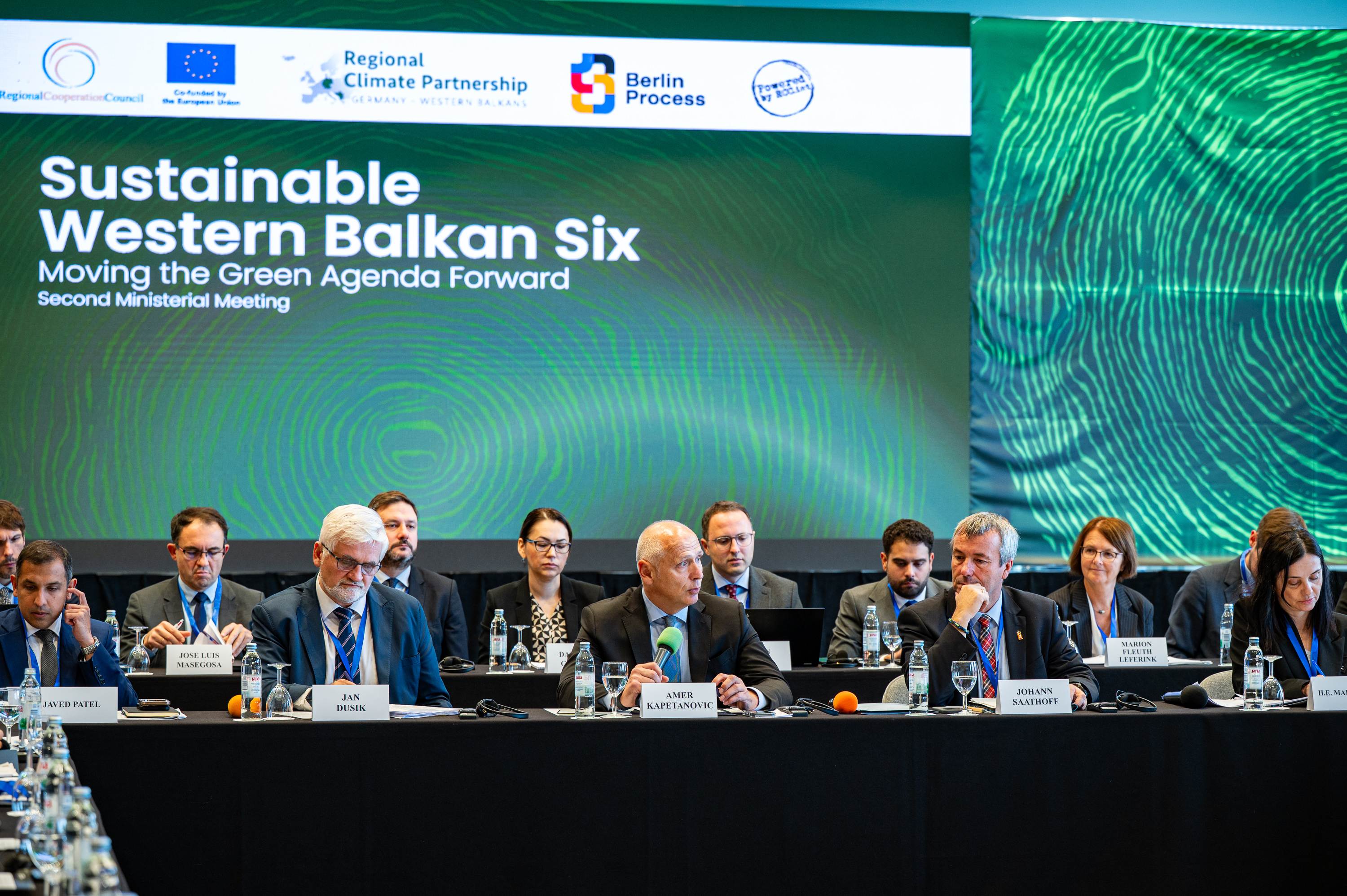
RCC Secretary General Amer Kapetanovic opening Second Ministerial Meeting on the Green Agenda for the Western Balkans took place on 14 October 2025 in Dubrovnik (Photo: RCC/Srdjan Karajica)
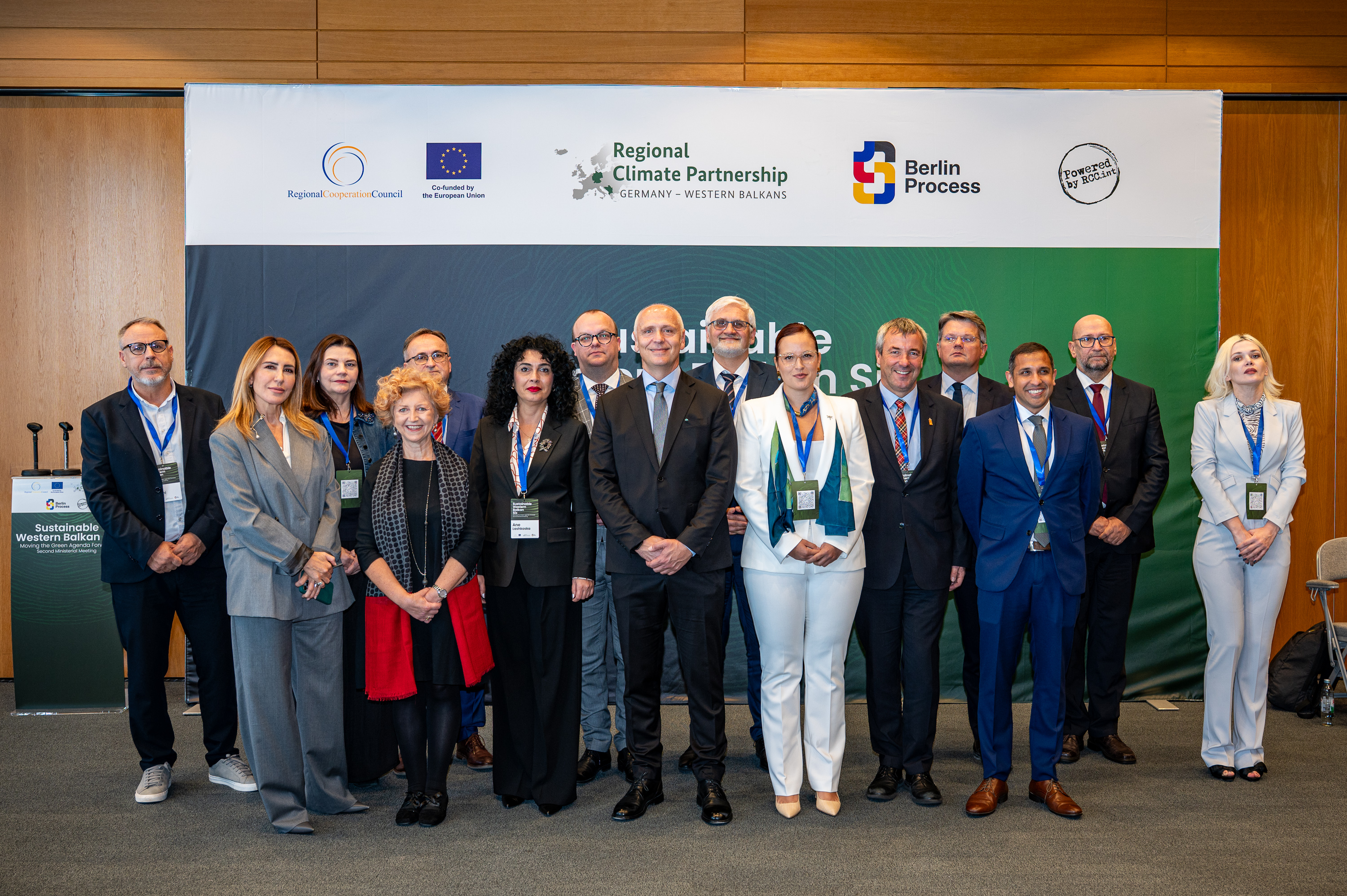
Second Ministerial Meeting on the Green Agenda for the Western Balkans took place on 14 October 2025 in Dubrovnik (Photo: RCC/Srdjan Karajica)
Dubrovnik, 14 October 2025 - Ministers of environment and sustainable development from the Western Balkans (WB) endorsed today the Dubrovnik Declaration at the Second Ministerial Meeting on the Green Agenda for the Western Balkans (GAWB).
The event was organised by the Regional Cooperation Council (RCC) in cooperation with the Federal Ministry for Economic Cooperation and Development of Germany (BMZ), under the Regional Climate Partnership, with the support of the European Commission, Government of Croatia and under the United Kingdom’s Chairmanship of the 2025 Berlin Process.
The Declaration confirms the region’s commitment to follow the European Green Deal. It represents a key milestone in building a cleaner, more sustainable, and climate-resilient Western Balkans 6.
By adopting the Dubrovnik Declaration, the WB ministers endorsed four major regional documents:
- The Revised Green Agenda Action Plan 2025-2030, which streamlines actions from 58 to 41 and ensures the region’s alignment with the European Green Deal;
- The WB6 Climate Adaptation Roadmap, setting a long-term vision for resilience and providing key steps toward developing a Regional Adaptation Strategy by 2026;
- The Regional Action Plan on Plastic Pollution Prevention, including Marine Litter, aimed at protecting marine and riverine environments and ecosystems of the Western Balkans 6; and
- The Outline of the WB6 Biodiversity Strategic Plan, laying the foundations for nature restoration and alignment with the Global Biodiversity Framework.
These documents define measurable goals for the region, some of which are: By 2028, the WB6 should reduce the availability of the most polluting single-use plastics by 80%. By 2030, plastic packaging should include at least 30% recycled content, and 40% of municipal waste should be recycled. The region should also protect 30% of land and marine areas, with at least 10% under strict protection.
“The Dubrovnik Declaration is not just another policy paper. It is a commitment to deliver. It moves the region from planning to measurable action,” said Amer Kapetanović, RCC Secretary General at the opening.
“The Green Agenda is our collective promise to make this region greener, fairer, and more resilient, a region that grows while protecting its people, nature, and jobs", Kapetanovic concluded.
Average temperatures in the Western Balkans 6 have already risen by more than 2°C, nearly double the global average. The region faces more droughts, floods, and wildfires. In 2024, 11 of Europe’s 13 largest wildfires occurred in the Western Balkans.
To adapt, the region will need around USD 37 billion in investments over the next decade. However, the potential annual benefits by mid-century could reach USD 74 billion through savings, resilience, and sustainable growth.
Jan Dusik, Deputy Director-General at European Commission's DG CLIMA highlighted the important role of the Western Balkans in the green transition odlf Europe, noting that the region has set ambitious yet achievable targets and must continue aligning with the European Union as part of its accession path. Dusík welcomed the work on the Green Agenda for the Western Balkans, acknowledging the progress made and the transformation of political commitments into concrete actions. He thanked the Regional Cooperation Council and its partners for their dedication, encouraging all involved to celebrate the achievements so far while redoubling efforts for the work ahead.
"A sustainable and stable Western Balkans strengthens the EU’s climate resilience, energy security, and competitiveness. Germany will continue to be your reliable partner. The German Development Ministry is preparing loans for another 250 million euros, to be committed before the end of this year," said Johann Saathoff, Parliamentary State Secretary at the Ministry for Economic Cooperation and Development of Germany in his opening speech.
Opening the event, Javed Patel, Ambassador of United Kingdom to Croatia, emphasised that the regional cooperation and shared responsibility were the essence of the GAWB, adding that the Dubrovnik Declaration shows that the Western Balkans is moving forward together, with Europe and with purpose.
In her opening remarks, Marija Vučković underlined that the Berlin Process has proven to be a successful model for advancing regional cooperation. She expressed optimism that the Green Agenda for the Western Balkans, recognised as a priority within this framework, offers an excellent opportunity for all partners to work together towards shared goals.
The meeting also featured the presentation of the outlines of the GAWB Observatory Platform. This new digital tool, being developed by the RCC, will monitor progress and strengthen transparency in implementing the Green Agenda across the region.
The Dubrovnik Declaration builds on the Hamburg Declaration (2024). It reflects the region’s determination to work towards achieving climate neutrality, protect biodiversity, reduce pollution, and accelerate alignment with the European Green Deal, as a part of the EU Growth Plan for the Western Balkans and the Berlin Process Agenda.
All documents endorsed at the today's meeting will soon be available at rcc.int.
Background:
The Green Agenda for the Western Balkans (GAWB) was launched at the 2020 Berlin Process Summit in Sofia. It aligns the region with the European Union’s Green Deal and sets a joint path toward climate neutrality, sustainable growth, and environmental protection.

